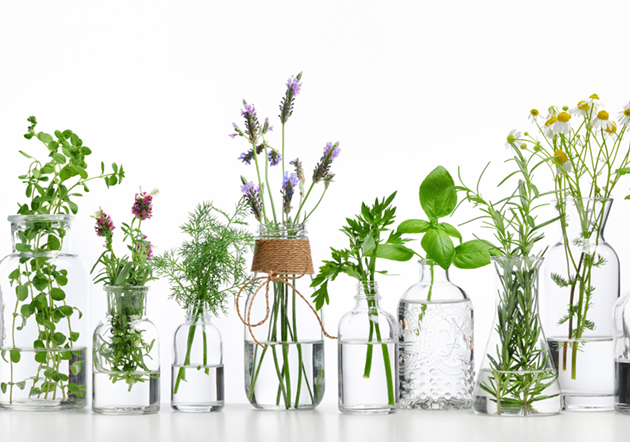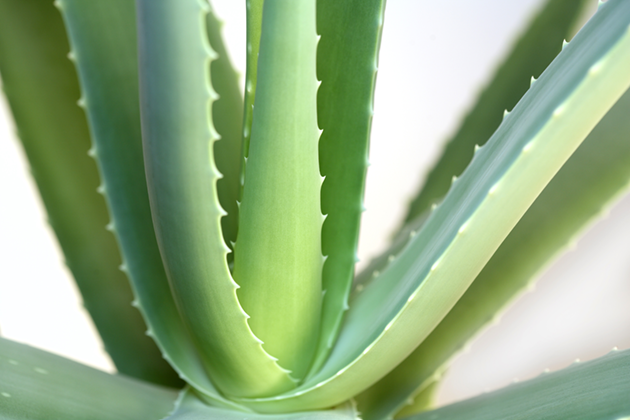
Great health is reliant on more than just good food and regular exercise. But who would have thought the humble houseplant would also be a great way to help us optimise our physical and mental wellbeing?
It is not without reason that members of the Royal Household are well known for talking to plants.
In fact, Prince Charles is particularly fond of conversing with his foliage. It has been said that by whispering sweet nothings to his plants, he believes he is helping them to grow.
While his plants may not show their gratitude by communicating their thoughts on COVID-19, Brexit or his love for classical music, they can give back in other ways.It appears the future king may already have realised that not only do plants look great and smell amazing, but they can promote healthy living through elevating good moods, lowering stress levels and improving sleep quality.
It’s also been proven that hospital patients with plants either in their room or with a view overlooking gardens have a better health outcome than those who don’t.
Consequently, patients in hospital rooms with plants and flowers had lower systolic blood pressure and lower ratings of pain, anxiety, and fatigue.
Same thing was found with office environments. Having plants around helps to keep us more alert and productive. If you’re fortunate to have a view of gardens, this is apparently reason enough to believe we have fewer sick days.
So now that we’re spending more time at home, it could be worth investing in houseplants. They’re relatively inexpensive, they look great, and the choice of species and pots is limited only to space, your personal preferences and budget.
Houseplants that offer the best healing properties include the following species:
Peace Lily (Spathiphyllum ‘Mauna Loa’)
The Peace Lily is one of Australia’s most common indoor plants. Able to tolerate both dark and dry soil, they are also one of the hardiest plants. Ideal for the bathroom, peace lilies have proven to be efficient air cleaners by removing ammonia — a component of urine – as well as absorb benzene, xylene, formaldehyde and trichloroethylene throughout your home.
Aloe Vera (Aloe barberae)
One of the best known of all plants with healing benefits, the biggest advantage to having an aloe vera plant in your home is its ability to clean air. Not only can the leaves of this plant be used to alleviate asthma symptoms, but the gel inside an aloe plant has been used for thousands of years as a common natural remedy to soothe irritated skin.
Snake Plant (Sansevieria trifasciata ‘Laurentii’)
One of the toughest of all house plants, many people refer to the snake plant as mother-in-law’s tongue because of the shape and sharp angles of its leaves. While most plants take in carbon dioxide and convert it to oxygen, the snake plant is one of only a few plants that release oxygen into the air at night. This means it is the perfect plant to have in your bedroom as you sleep. For optimal air purification throughout your entire home, consider purchasing six to eight snake plants of waist-high height.
Lavender (Lavandula)
Lavender plants are typically grown outdoors. What is less well known is that, provided you place them near a south-facing window, they can also be grown indoors. Prized for their calming and gentle aroma, the smell from the lavender plant can help induce a state of tranquillity that is good for both stress relief as well as preparing you for a much better sleep. Lavender is an ideal plant to place in your bedroom.
Areca Palm (Dypsis lutescens)
Unlike succulent plants such as cacti, the areca palm does not retain water. What this means is this popular household palm, also known as bamboo palm, golden cane palm or butterfly palm, releases moisture into a room making it a welcome addition in Australia’s dry winter months or in places reliant on using frequent air conditioning.
Chamomile (Matricaria recutita)
Growing chamomile at home will give you an endless supply of its leaves and flowers to make tea which has calming effects and also helps in reducing anxiety and induces better sleep.
Gerbera Daisy (Gerbera jamesonii)
Gerbera daisies are one of the longest lasting cut flowers and their year-round availability and affordable price makes them even more attractive. They discharge oxygen and absorb carbon dioxide and other airborne toxins at night, helping for a better night’s sleep.
Having houseplants in your home, no matter what variety, can be beneficial to your health long term.
Not only do they help reduce stress and fatigue, but the fragrance some of them omit and the beauty they represent will prove good for your physical as well as your mental wellbeing.












